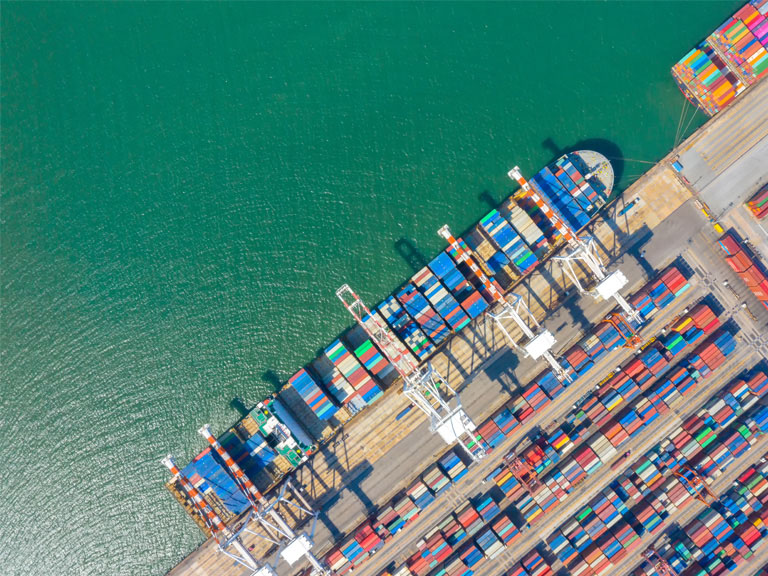
The foundation of contemporary civilization is global commerce. In ways that were inconceivable just a century ago, it propels economies, feeds billions, powers industries, and connects the world. However, what transpires when an additional global conflict rips the very foundation of international cooperation apart?
The question of whether global trade can endure another world war or if it would completely unravel is no longer hypothetical, as geopolitical tensions are on the rise and historical repercussions are becoming increasingly audible.
The Degree of Interdependence in the Present Day
In contrast to the early 20th century, the global economy of today is **extremely interdependent**. Countries no longer operate in economic silos:
* **Manufacturing** is frequently dispersed across borders, with basic materials sourced from one region, components manufactured in another, and final assembly undertaken in a different location.
* **Food and energy** are global commodities, with millions of individuals relying on imports for their sustenance.
* Every second, **digital trade**—including data, services, and intellectual property—transcends national borders.
Disruptions in this system are not limited to a single location; they extend across continents.
The Potential Impact of a Global Conflict
The flow of global commerce would be severely impacted in several ways by a Third World War, which is expected to involve both **military action** and **economic warfare**.
1. **Trade and Shipping Routes**
Battlegrounds or blockades may occur in critical sea channels, including the Strait of Hormuz, the Suez Canal, and the South China Sea. Additionally, security hazards and shutdowns would be encountered in the context of air freight and cargo traffic.
2. **Destruction of the Supply Chain**
The potential for the collapse of global manufacturing centers and just-in-time logistics. Countries that depend on foreign inputs for pharmaceuticals, electronics, and fuel would seek alternative sources.
3. **Economic Decoupling and Sanctions**
Rival nations may be subjected to extensive sanctions by allied nations, which could result in the cessation of essential exports. Much like the Cold War, trade blocs may fragment into hostile zones; however, the stakes are significantly higher today due to the significant degree of integration at stake.
4. **Global Institutional Collapse**
Organizations such as the World Trade Organization, IMF, and World Bank depend on collaboration. During times of war, they would either be completely marginalized or lose their influence, resulting in the absence of a neutral platform for the resolution of trade disputes.
Is it possible for trade to endure, or even adapt?
Global trade may not disappear utterly, despite these hazards. History demonstrates that commerce is capable of adapting, even during periods of conflict.
1. **Regional Trade That Is Resilient**
Although global trade flows may experience a decline, **regional alliances** may experience a strengthening. Nations that are part of common security or political blocs may continue to engage in extensive trade with one another, thereby reestablishing supply chains within trusted circles.
2. **The Emergence of Neutral Trade Corridors**
**Economic intermediaries**, which are non-aligned or neutral nations, may facilitate the transfer of products across conflict boundaries or provide secure trade zones.
3. **Reindustrialization and Wartime Innovation**
In order to satisfy the requirements of wartime, nations may undergo accelerated industrialization. This could result in **new technologies and domestic capabilities** that significantly alter trade in the future, similar to the advancements in aviation, computing, and radar that occurred during World War II.
4. **Decentralized and Digital Trade Systems**
Blockchain, decentralized finance, and digital currencies may offer secure methods for transacting across borders, even in the event that physical routes are blocked or sanctioned.
Post-War Trade: Reinvention or Collapse?
History also demonstrates that **economic expansions are frequently initiated during post-conflict periods**. Massive commerce and investment were implemented as part of the Marshall Plan to reconstruct Europe. The UN, IMF, and General Agreement on Tariffs and Trade (GATT) were among the new institutions that established the foundation for global cooperation following World War II.
Nations may:
* Negotiate trade agreements with new partners * Rebuild infrastructure to ensure resilience and sustainability * Establish new digital or regional commerce networks that are less reliant on legacy systems.
A more diversified and **resilient commercial architecture** could result from the trauma of war.
Final Thoughts: Survival through Adaptation
Global commerce would not emerge unscathed from a global conflict; it would likely experience severe short-term disruption, painful decoupling, and economic fragmentation. However, a complete collapse is improbable.
Trade is not merely an economic instrument; it is an absolute necessity. Interconnectedness is the foundation of the contemporary world, and even in times of conflict, the desire to interchange resources, ideas, and services persists.
If history is any indication, global commerce would not endure by persisting in its current form, but by transforming into a more robust, digital, regional, and streamlined entity.
The future of global commerce in a war-torn world may be uncertain; however, its ability to adapt could be its greatest asset.
Leave a Reply